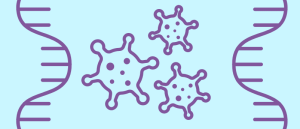Revvity: global life science and diagnostics company looks to new horizons in Cambridge and beyond

Last summer, we attended the launch of Revvity’s Scientific Centre of Excellence for Genomic Insight in Cambridge (UK). But what is the company, where did it come from and what are its aims?
The launch of Revvity
Revvity emerged from the life sciences and diagnostics business of PerkinElmer (MA, USA) in May 2023 when the company divested its food, applied and enterprise services businesses. These businesses were sold to New Mountain Capital, a growth-oriented investment firm based in New York. (NY, USA), who retained the PerkinElmer name.
The unified diagnostics and life sciences portfolios meanwhile formed the new company, Revvity, making it one of the largest companies of its kind. The name “Revvity” was born from two words, “revolutionize” and “vita” (which means life in Latin). The legacy businesses within these portfolios were taken with them on this rebrand. As such, Cambridge-based Horizon Discovery, acquired by PerkinElmer in 2020, is now part of Revvity and was established as a “Scientific Centre of Excellence for Genomic Insight” in July last year.
Talking to Bryan Kipp, Vice President and General Manager of Life Sciences Strategy and Integration, at the launch of this Centre of Excellence, it is clear that he is deeply enthused by the journey so far and the prospects for the business. “Before the split, PerkinElmer was focused on very different markets with different dynamics, which motivated the company to make this strategic move. Aligning the entire organization with a single-minded focus on the impending precision medicine healthcare revolution, in which the biopharmaceutical, life sciences, and diagnostics industries are converging, best positions Revvity to realize our purpose of helping create a healthier humankind for all.”
With the current level of investment in the biotech and life science industries slowing, particularly in Europe, it could be said that the dramatic investment in the former Horizon Discovery site was slightly against the grain. However, Bryan is confident that by uniting science and resources in the diagnostics and the life science sectors, Revvity is getting a head start, readying itself for the increasing convergence of healthcare technologies and individual biological relevance.
What happens at a Scientific Centre for Genomic Excellence?
“What we are not,” stresses Bryan, delivering each word slowly and precisely, “is a therapeutics company.” Instead, Revvity exists to serve the industry by supporting academic and therapeutics developers. During our conversation, Bryan reaches for my notepad and begins to outline how the Revvity Cambridge site fits into the Revvity Life Sciences organization and the company’s broader vision. The site’s capabilities span functional genomic screening through diagnostics, bioproduction, and novel therapeutic enabling technologies. For example, if a pharma, academic, clinical partner is designing a diagnostic test for BRAF mutations, Revvity Cambridge can provide cell-based reference controls to ensure the integrity of the assay. If they are working to understand the mechanism of action of a drug or how it potentially interacts with a particular disease, Revvity Cambridge has the scientific expertise in-house to support their research efforts. When therapeutic production is being scaled up, Revvity Cambridge’s novel bioproduction gene expression systems can support their manufacturing. In the end, genomic insights play a pivotal role in supporting its customers in bringing the therapeutic to market faster, and they are vital in translating clinical information into action, Bryan explains.
 tARC-Seq reveals mechanisms driving mutations in COVID-19
tARC-Seq reveals mechanisms driving mutations in COVID-19
A new, less error-prone approach to sequencing SarsCoV-2 genomes has revealed key information on factors responsible for the development of new COVID-19 variants.
To get insight into the equipment needed to pull off this complex operation, I spoke with Chris Lowe, a legacy Horizon Discovery employee, and Revvity Cambridge’s Site Leader and Head of Technology and Innovation, whose career spans over 20 years in Cambridge. It’s almost strange to meet a scientist who seemingly wants for nothing, a peculiarity that doesn’t seem to have passed Chris by. When I ask if there is anything he still needs to optimize his laboratories further, he leans forward and speaks in a hushed tone. “Well the thing is … I pretty much have everything that I want at the moment.” He looks almost sheepish, as if by saying it out loud he may disturb the beautiful mirage of a fully staffed laboratory with the latest equipment and resources.
What he is keen to talk about is what he does have. “Of all the things we have in the labs, the high-content imagers are exciting as they expand options for high-throughput screening. Personally, I’m also really interested in our new Revvity FlexDrop system for liquid dispensing. It’s akin to some of the legacy high-throughput precision liquid handler systems we have from other providers that use sound to fire minuscule droplets from the source plate onto the receptor plate, which are slightly terrifying in their accuracy. While they are very efficient, the FlexDrop has a similar performance but at a much more affordable price, meaning we can start to take some of the workload off those systems and expand our capabilities.”
It seems this huge investment and the company purpose driving it have both been very welcome at the site. “I had been at Horizon for 12 years. Since its infancy really,” Chris highlights. “Revvity’s fundamental goal is to improve human health and that was essentially Horizon’s legacy, aim and mission, so it hasn’t been a culture shock. It’s been a big win-win for us all.”
Generating genomic insights
When discussing the Revvity Cambridge site and its primary focus on genomic insights, Chris highlights its newly launched Pin-Point Base Editing platform, which spans research-use-only reagents through licensing of the technology for therapeutic development. Chris revealed, “Pin-point Base Editing has been a multi-year priority due to its transformative potential.”
This platform was exclusively licensed from Rutgers University and optimized by Horizon Discovery and has since been successfully validated and commercialized for use in therapeutic development, making it one of very few next-generation gene editing technologies that can be used in preclinical research and drug discovery with the hopes of translating to the clinic soon. The improved accuracy and safety profile of this technique represents a significant step forward in gene editing and provides Revvity with a differentiated and highly valuable tool to help accelerate the personalized medicine revolution.
Fully capitalizing on its immense internal collaboration seems to be the only remaining challenge in Revvity’s path. The Scientific Centre of Excellence for Genomic Insight in Cambridge is by no means the extent of Revvity’s research sites, and the wide group of companies that were brought together under the banner of Revvity offers a lot of different scientific expertise.
“If we can even more tightly align all of our different sites with what we can offer here in Cambridge,” Chris reveals, “then we can deliver fantastic solutions for the most highly complex problems our customers experience. That’s my next area to focus on: strengthening internal networks among the different sites to maximize our capabilities.” Given the company’s strong presence globally, and continued investment and development, it will be exciting to see how Revvity performs and how it develops next.